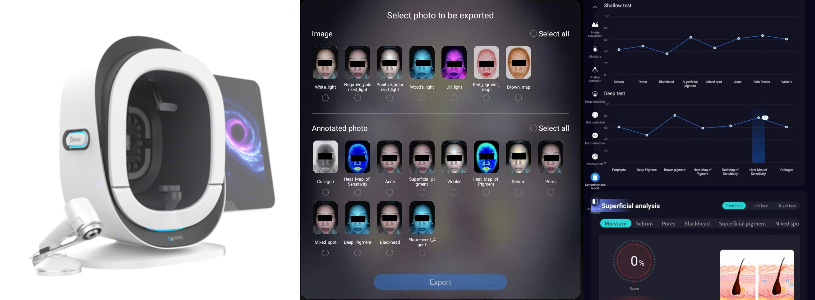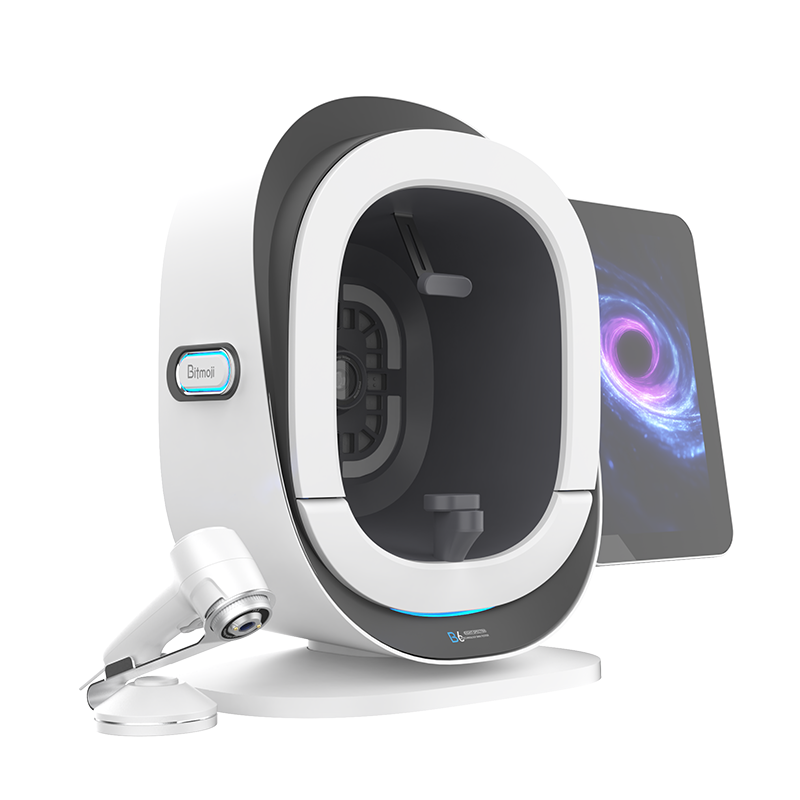Are you using expensive skincare products every day without seeing any improvement? Is your skin becoming red, swollen, and experiencing more severe acne? Have you followed popular trends and purchased popular products, only to find that your skin has become increasingly sensitive and fragile? Many people feel lost on their skincare journey. They use products based only on guesswork. However, what they don’t realize is that their wrong skincare habits may have already damaged their skin barrier.
The launch of Bitmoji-tek AI skin analyzer changes this by using precise detection and scientific guidance. It becomes a key tool to avoid ineffective skincare.

Why Does Skincare Sometimes Make Skin Worse?
Ineffective skincare often comes from blind actions that ignore your skin’s real needs. This not only wastes money and effort, but it can also harm your skin’s health. Common mistakes fall into three main categories:
Over-cleansing and over-exfoliating
Overusing skincare products like exfoliating scrubs, chemical peels, or facial washes can damage the skin’s protective barrier. Normal skin cells renew every 28 days, but excessive scrubbing exposes the skin to pollutants and UV rays, weakening its protective function.
This can lead to redness, stinging sensations, and even the development of sensitive skin. Additionally, when the stratum corneum becomes thinner, the skin’s natural oil production increases to compensate, creating a vicious cycle where the more you exfoliate, the oilier your skin becomes.
Layering too much skincare product
Your skin has a limited ability to absorb products, but many people believe that “more steps mean better skin.”
In reality, thick product layers can clog pores, leading to closed acne and breakouts. Different ingredients may even conflict with each other.
Unbalanced cleansing and care
Some people skip makeup removal when they’re tired and go to bed directly, leaving makeup and sunscreen residues in their pores. This can speed up the development of blackheads and dullness.
On the other hand, others over-remove makeup by using multiple cleansing products repeatedly. However, incomplete emulsification and constant rubbing can damage the skin’s lipid barrier. This triggers red blood vessels and dryness.
The core problem behind all of these actions is a lack of accurate understanding of your own skin condition.
How Does Bitmoji-tek AI Skin Analyzer Enable Effective Skincare?
As an advanced skin detection device, Bitmoji-tek AI skin analyzer uses multi-dimensional functions to provide quantitative analysis and scientific evaluation of your skin. Its core functions include three key modules:
Multi-dimensional imaging technology
Bitmoji-tek AI skin analyzer uses high-definition lenses and 8-spectrum imaging to dive deep and uncover hidden skin issues.
Comprehensive indicator detection
Take Bitmoji-tek latest product, the B6 AI Skin Analyzer, as an example. It tests 24 skin indicators, checking surface issues like pores, blackheads, and oil, as well as detecting deep skin problems, such as hidden pigmentation and sensitivity risks. Additionally, it has a skin prediction function that warns you about improper skincare habits.
Customized skincare plans
After detection, Bitmoji-tek AI skin analyzer automatically generates a report and classifies your skin using the 16 Baumann Skin Types system. This provides a clear view of your skin condition and a personalized skincare plan to help you choose products that suit your face.

Conclusion
The core of skincare is not about expensive products or complicated steps. It’s about protecting your skin barrier and using targeted care. Bitmoji-tek AI skin analyzer uses technology to bridge the information gap, helping everyone understand their skin’s real needs. It identifies potential risks of ineffective skincare, creates personalized plans, and tracks the results of your care. By turning skincare from a guess-based habit into a data-driven, scientific practice, your skin can naturally regain its health. This is the key change that smart detection devices bring to the skincare industry.

